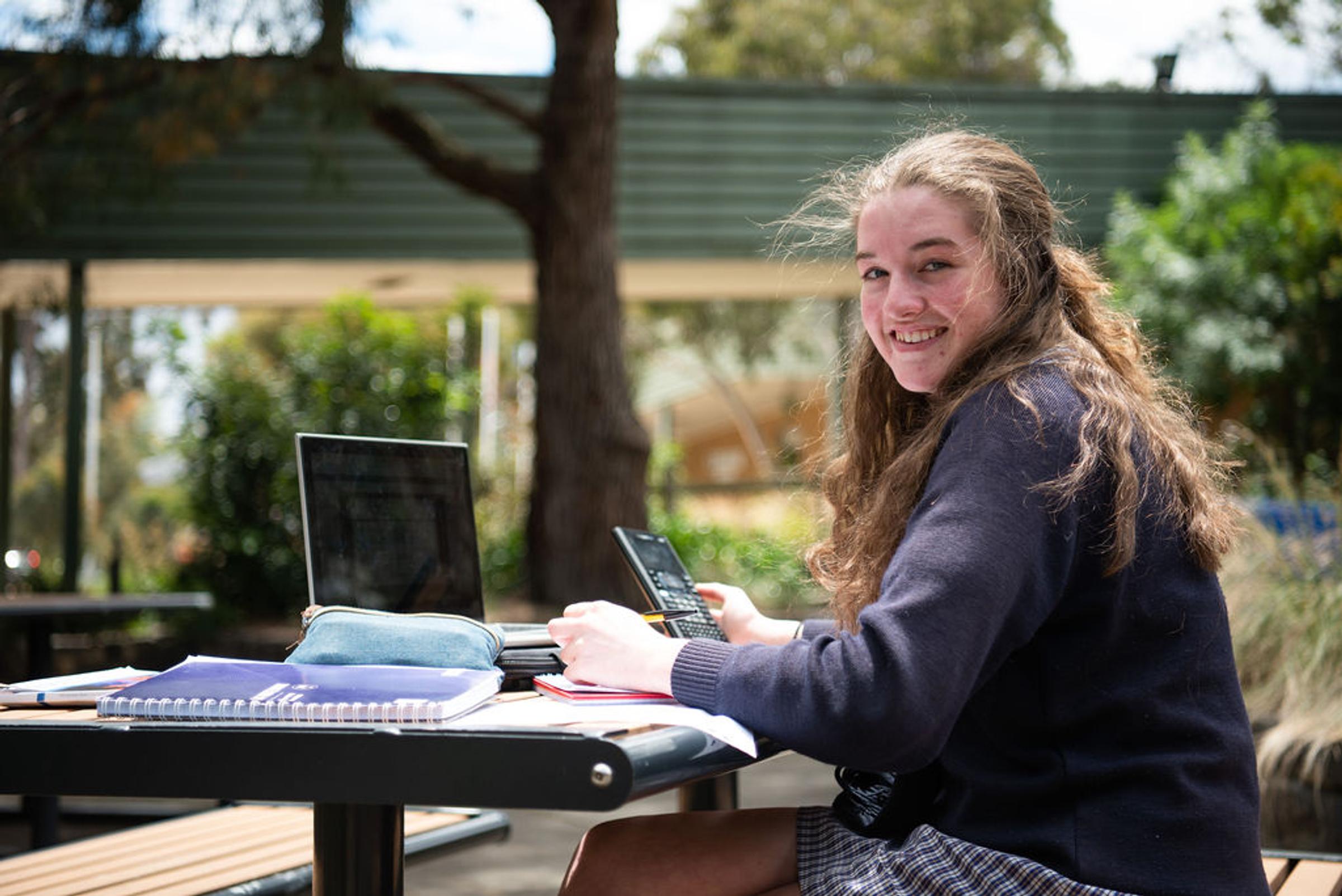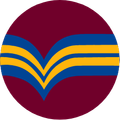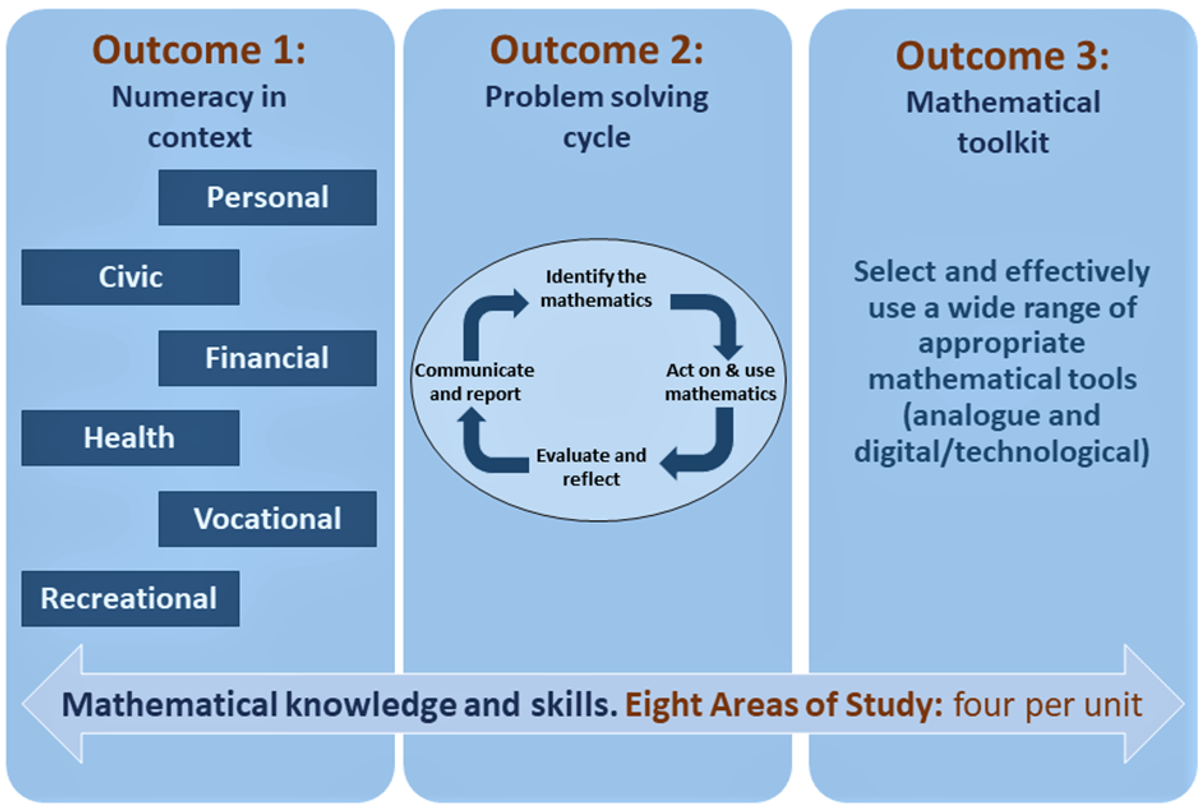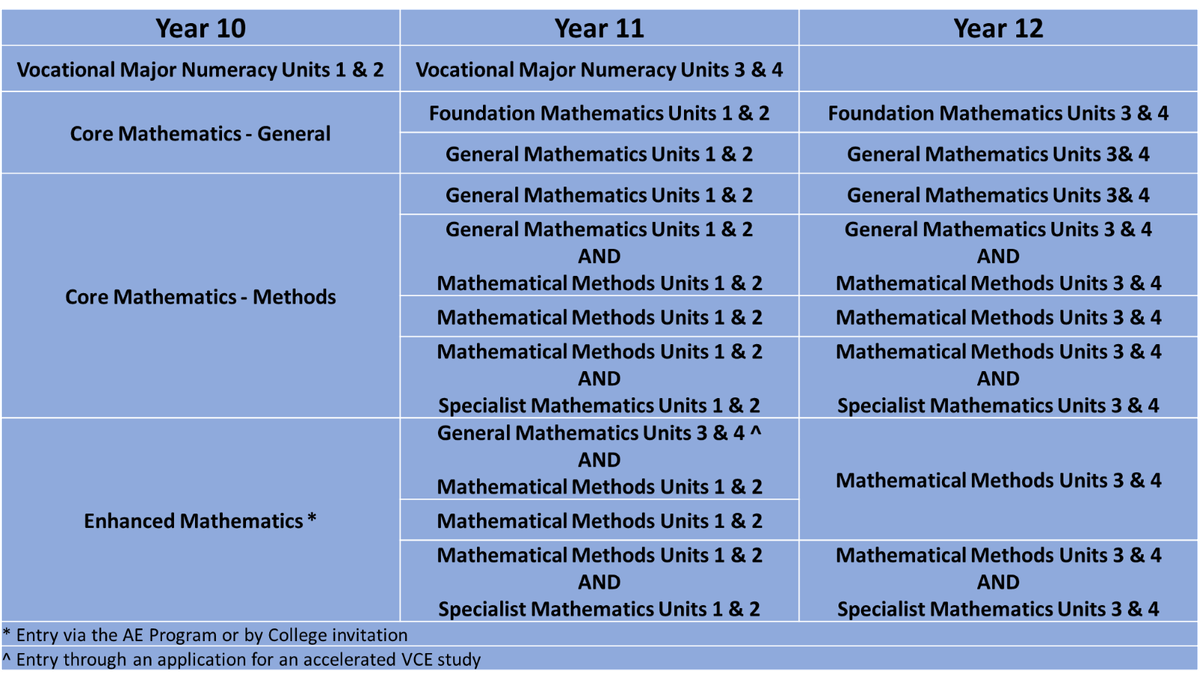Year 10 Mathematics

Year 10 Mathematics Subjects (Year Long) |
|---|
Core Mathematics - General |
Core Mathematics - Methods |
Enhanced Mathematics |
VCE Vocational Major Numeracy Units 1/2 |
*See the bottom of this page for information on Mathematics Pathways.
Core Mathematics - General
This course has been designed to build on previous studies in Mathematics and to provide a solid foundation for future studies in VCE General Mathematics Units 1 and 2.
Semester 1 Overview
Students will solve problems involving the area of triangles and quadrilaterals and the surface area and volume of prisms, cylinders, and related composite solids. The application of Pythagoras’ theorem and trigonometry to solving in right-angled triangles will be explored. Students will solve problems involving linear equations, including those derived from formulas with and without the use of digital and CAS technology, including problems involving gradients of parallel and perpendicular lines. They will represent linear functions numerically, graphically and algebraically, use them to model situations, and solve problems. Student will apply arithmetic recurrence relations to financial arithmetic problems, including investments, loans and depreciation.
Semester 2 Overview
Univariate and bivariate data will be discussed as students compare data sets by referring to summary statistics and the shape of their displays as well as evaluating the use of statistics in everyday situations. Students will be introduced to matrices, perform matrix arithmetic as well as discuss conditions for their use. Matrices will also be investigated as a tool for encoding and decoding information. Students will be introduced to Networks and graph theory including minimum spanning tree and shortest path algorithms.
Additional Information: Students will require an approved CAS calculator as prescribed on the booklist.
Core Mathematics - Methods
This course has been designed to build on previous studies in Mathematics and to provide a solid foundation for future studies in VCE Mathematical Methods.
Semester 1 Overview
Students will be introduced to matrices and their use, including matrix products and powers, to model practical situations and solve a range of related problems. Inverse matrices and their applications will also be discussed. Students will apply logical reasoning, including the use of similarity and the application of angle and chord properties of circles, to numerical exercises involving plane shapes. The solution of right-angled triangle problems including those involving direction and the angles of elevation and depression will be explored as direct applications of Pythagoras’ Theorem and the trigonometric ratios. They will use the unit circle to define trigonometric functions, and graph them with and without the use of digital technologies. They will use the unit circle to define trigonometric functions, and graph them with and without the use of digital technologies. A variety of strategies to factorise monic and non-monic quadratic expressions will be explored and applied when solving problems involving these functions. Students will solve problems involving surface area and volume for a range of prisms, cylinders, right pyramids, right cones, spheres and related composite solids. Students will define rational and irrational numbers and perform operations with surds and fractional indices.
Semester 2 Overview
Students will solve problems involving gradients of parallel and perpendicular lines as well as investigating the processes involved for solving simultaneous linear equations, using algebraic and graphical techniques including using digital technology. Students will solve problems involving quadratic equations and their related graphs, with and without the use of digital technology. Quadratic functions will continue to be investigated and represented graphically and used to model situations and to solve practical problems. They will describe results of two and three-step chance experiments, both with and without replacements, and assign probabilities to outcomes and determine probabilities of events. Students will investigate the concept of independence and conditional statements and identify common errors in interpreting such language in the area of probability.
Additional Information: Students will require an approved CAS calculator as prescribed on the booklist.
Enhanced Maths
This course has been designed to build on previous studies in Mathematics and to provide a solid foundation for future studies in VCE Mathematical Methods Units 1 and 2 and also serves as an introduction to a number of different areas of study undertaken in Specialist Mathematics.
Unit 1
In this unit students will cover representation and manipulation of linear relations and equations, including simultaneous linear equations, and their applications in a range of contexts. Polynomial and power functions will be investigated and the techniques for the solution of these polynomial equations will also be explored algebraically. Student will also study functions and relations with an emphasis on domain, range and transformations in the plane.
Unit 2
In this unit students will cover the graphical representation of functions and the key features of graphs of sine, cosine, tangent, root, hyperbola, truncus, circles, exponential and logarithmic functions such as axis intercepts, domain and range, asymptotic behaviour, periodicity and symmetry.
Prerequisites: Students in the EA program and selected other students may receive a College Invitation to undertake this subject.
Additional Information: Students must have a TI-Nspire CAS calculator as prescribed on the booklist.
VCE Vocational Major Numeracy
Unit 1
In this unit students will apply the use of integers, decimals, fractions, ratios, proportions, percentages and rates to solve practical problems. They will use and interpret formulas and algebraic expressions to describe relationships between variables and to model patterns that exist in everyday contexts. Students will apply and use metric units and measures, including derived measures. They will interpret and use time and duration including time and date specifications, conventions, schedules, timetables and time zones.
Unit 2
In this unit students will investigate geometric conventions and properties of shapes and objects, the application and use of similarity and symmetry and the processes involved in the enlargement and reduction of diagrams and models. The interpretation and use of location, distance, direction and scale on diagrams, maps and plans will be discussed in regards to their use in practical situations. They will cover the processes involved in the collection, presentation and analysis of gathered and provided data from community, work, recreation and media contexts. Students will interpret diagrams, charts, tables and graphs and use measures of averages and spread to summarise, interpret and compare data sets.
Unit 3
In this unit students will learn procedures for the solution of expressions and equations will be discussed and used to solve problems including predicting a required quantity or finding a break-even point. Students will investigate and model and range of financial contexts including credit cards, savings and loans. Students also solve problems within the context of taxation, wages, GST, insurance and superannuation. Students will investigate the costs associated with overseas travel including transport, accommodation and the impacts of exchange rates.
Unit 4
In this unit students will investigate how to interpret and use plans, elevations, maps, models and diagrams. They will apply procedures for the solution of personal, societal and workplace problems involving metric measurement with consideration of error, required accuracy and tolerances. Student plan and develop cost estimate for construction and renovation projects using the concepts of length, surface area and volume. Students also investigate the costs associated with owning and running a vehicle including upfront/lease expenses, fuel, maintenance and insurance.
Maths Pathways
Frequently Asked Questions Mathematics Pathways - Year 9 into 10
Q. If I choose Core Mathematics - Methods in Year 10 and find it too difficult, does that mean I can't do any maths in VCE?
No, you should consider keeping a maths in your program, but you will need to enrol in either General Maths or Foundation Maths. See the Maths Pathways Table to fully understand your options.
Q. Can I apply for an Enhanced Mathematics?
You cannot apply for Enhanced Mathematics (unless you are in the Accelerated class). Core maths students will receive a letter of invitation if they are deemed eligible.
Q. How does the subject acceleration application process work?
You need to apply using the process you have been given. A panel of teachers will then review your application to decide if you show the necessary dispositions to succeed in the subject and we take into account your progress in your other subjects. The decision is not made by your maths subject teacher alone, but of course, we take this into account when making the decision. Acceleration into Unit 1 & 2 Mathematical Methods is not advised, even for exceptional math students, as these students will compete in their year 12 Methods exams against students who has studied year 12 Specialist Math putting them at a strategic disadvantage. You will be informed of the outcome by an official letter from the college and not by your maths teacher.
Q. What are my future options if I study VCE Vocational Major Numeracy?
There are no pathways into any other Unit 1-4 maths from Numeracy. This subject will contribute units towards a VCE Vocational Major, but as there are no SACs or exam, it does not generate a study score or contribute to an ATAR calculation. Please see the Maths Pathways Table above for more detail.
Q. How do I know which Mathematics I'll be good at?
It's sometimes hard to know this, so at Year 10, we encourage you to choose a maths which keeps your options open, is challenging, but not overwhelming. This is different for everyone so it's great to speak to as many adults as possible to help you with the decision. If in doubt, choose the maths that keeps your options open after Year 10.
Q. Can I change Mathematics levels mid-year?
No. Your Mathematics choice is a year-long commitment and will inform your choice of maths in Year 11. During Year 10, you will reflect on your progress and make a sound decision for Year 11 and 12 based on this.
Q. Can I study 2 different Mathematics in Year 11?
Yes. You can study both Unit 1 & 2 Mathematical Methods and Unit 1 & 2 General Maths or both Unit 1 & 2 Mathematical Methods and Unit 1 & 2 Specialist Maths in Year 11. You should make sure you consult a number of knowledgeable people and consider your future career path before deciding to do this.


